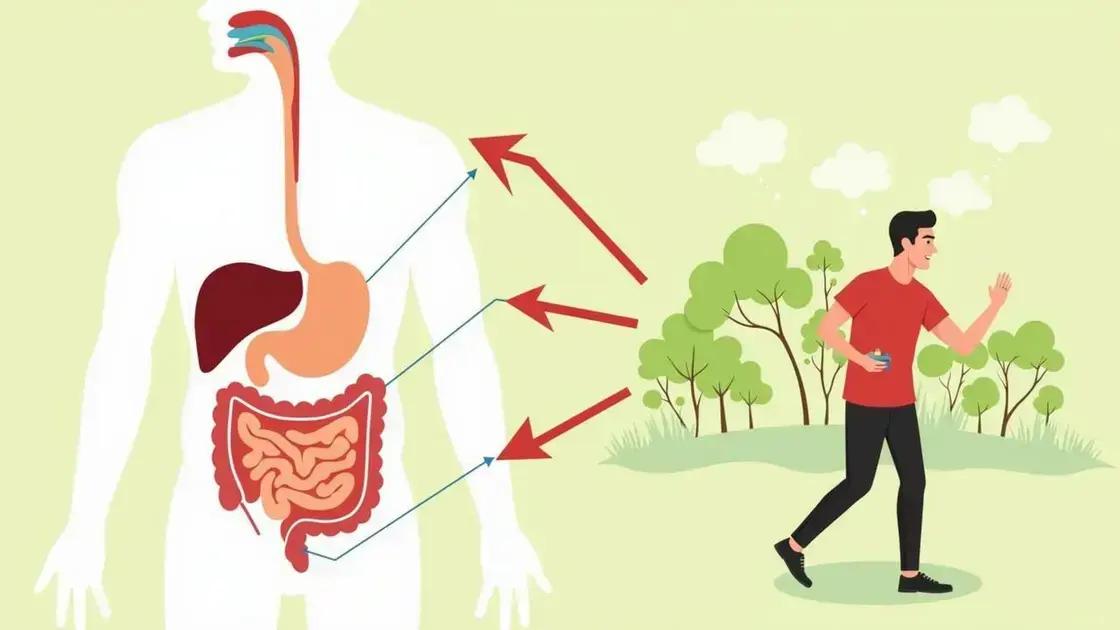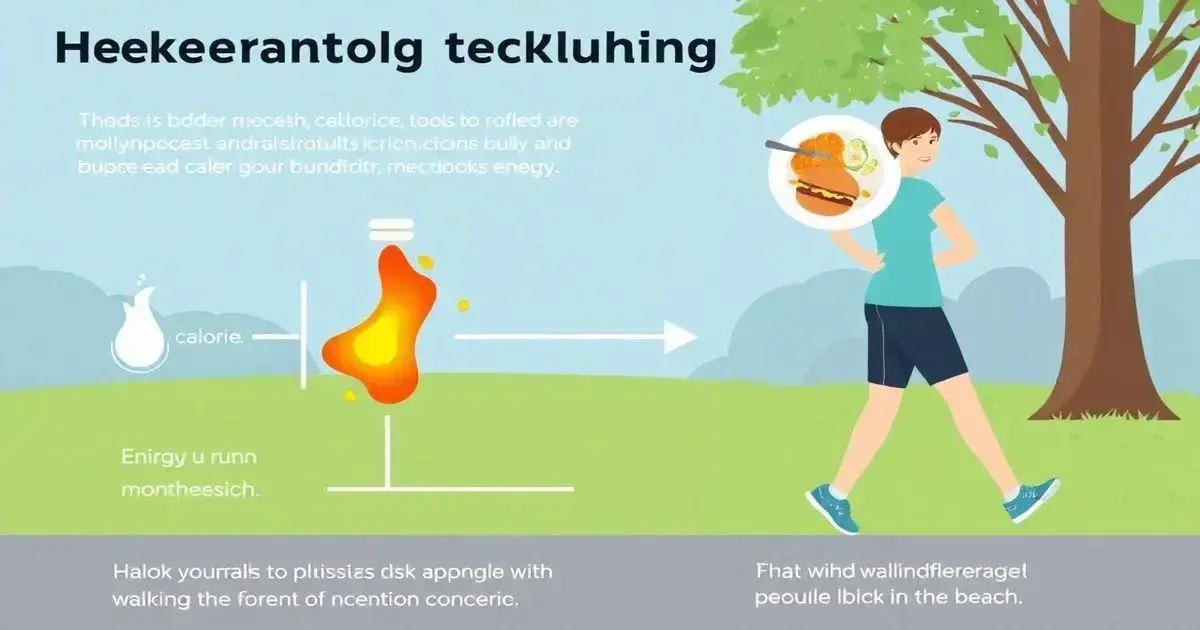Walking after meals offers numerous health benefits, including improved digestion, enhanced metabolism, better blood sugar control, and long-term advantages like weight management and cardiovascular health.
Walking after meals is a simple yet effective way to enhance digestion and promote better health. Recent studies show that a short walk can significantly aid in the digestive process, allowing food to be processed more smoothly in the body. In this post, we will delve into the science behind how walking impacts digestion, explore its effects on metabolism, provide tips for integrating walking into your post-meal routine, and highlight the long-term health benefits you can enjoy by making this practice a habit.
The Science Behind Walking and Digestion

Understanding Digestion is essential to appreciating why walking after meals can be beneficial. When we eat, our bodies begin a complex process of breaking down food into nutrients that can be absorbed. This involves mechanical actions, such as chewing and mixing food with saliva, as well as chemical processes where enzymes play a crucial role.
As digestion happens, the body diverts blood flow to the stomach, enhancing nutrient absorption. Walking gently stimulates this process. It promotes circulation, which increases blood flow to the digestive organs, helping them work more efficiently.
Scientific Studies on Walking and Digestion have shown that light activity after meals can prevent discomfort. Research indicates that a brief post-meal walk can reduce feelings of fullness and lower instances of bloating. The evidence suggests that gentle movement encourages the passage of food through the digestive system.
One significant benefit of walking is its impact on the gastric emptying process. Gastric emptying is the period it takes for food to leave the stomach and enter the small intestine. Studies reveal that moderate walking can speed up this process, leading to quicker digestion.
Moreover, walking helps in regulating blood sugar levels after eating. Maintaining stable blood sugar is crucial for overall health, as it can affect mood, energy levels, and hunger. A brief walk can lower post-meal blood sugar spikes, making it a valuable habit for those concerned about glucose levels.
In summary, the science behind walking and digestion indicates that even a small amount of movement can aid this natural process. By stimulating circulation and supporting gastric emptying, walking after meals stands as an easy, yet effective, habit to enhance overall digestive health.
Effects of Walking on Metabolism

Walking plays a vital role in boosting metabolism, which is the process your body uses to convert food into energy. After meals, engaging in light physical activity like walking can enhance this process significantly.
When you walk, your muscles begin to use energy to move. This uses calories and helps your body burn off some of the energy from the meal you just consumed. Studies show that even a short 15-30 minute walk can increase metabolic rate, making it easier for your body to process food efficiently.
Post-meal walking can encourage the body to use sugar and fat as energy. This is especially important for maintaining healthy blood sugar levels. By engaging in movement, your body reacts by increasing the activity of enzymes that help break down glucose and fatty acids.
Furthermore, walking can improve insulin sensitivity. Insulin sensitivity refers to how effectively your body can respond to insulin, a hormone that regulates blood sugar. Increased insulin sensitivity means your body can utilize glucose better, reducing the risk of high blood sugar levels after meals.
Regular walking can also lead to long-term metabolic benefits. Over time, consistent post-meal walks may help in achieving a healthier weight. Weight management is closely linked to metabolism, and walking can assist in maintaining an ideal body weight, thereby influencing metabolic health positively.
Incorporating walking post-meals into your daily routine is simple and requires no special equipment. It promotes a natural boost in metabolism, supports energy balance, and enhances overall health.
Tips for Walking After Meals

Walking after meals can be more enjoyable and effective with a few simple tips. Incorporating these suggestions can enhance your experience and support your digestion.
Start Slow: Begin with a leisurely walk after eating. A relaxed pace is perfect, especially right after a meal. This allows your body to adjust and reduce any feelings of fullness.
Time Your Walk: Try to walk about 10 to 30 minutes after your meal. This timing helps with digestion, as your body is still processing the food.
Choose a Nice Route: Walking in a calm and pleasant environment can boost your mood. Consider parks, quiet neighborhoods, or trails surrounded by nature.
Walk with a Buddy: Enjoying a walk with a friend or family member can make the experience more enjoyable. It’s a great time to chat and catch up while being active.
Wear Comfortable Shoes: Choose footwear that is comfortable and supportive to avoid any foot pain. Well-fitting sneakers are ideal for a pleasant walking experience.
Stay Hydrated: After your meal, drink water before your walk. Staying hydrated helps digestion and gives you energy. Just avoid drinking too much right before walking.
Listen to Your Body: Everyone’s digestion is different. Pay attention to what feels best for you. If you feel uncomfortable, slow down or take a break.
By following these simple tips, walking after meals can become a beneficial routine for improving digestion and promoting overall health.
Long-term Health Benefits of Post-meal Walking

Post-meal walking offers numerous long-term health benefits that can improve your overall quality of life. Regularly walking after meals is a simple yet effective way to enhance health.
Weight Management: Incorporating post-meal walks can be instrumental in maintaining a healthy weight. Regular physical activity helps burn calories, making it easier to manage body weight over time. This can reduce the risk of obesity and its related health issues.
Improved Cardiovascular Health: Walking is a cardiovascular exercise that strengthens the heart. Regular post-meal walking can contribute to lower blood pressure and improved cholesterol levels, leading to a healthier heart and reduced risk of heart disease.
Enhanced Mental Health: Physical activity, such as walking, releases endorphins, which can improve mood and reduce feelings of stress and anxiety. Making this a regular habit can lead to long-term improvements in mental well-being.
Better Blood Sugar Control: Walking after meals helps regulate blood sugar levels. This can lead to a lower risk of developing type 2 diabetes. Improved insulin sensitivity from regular walking makes your body more effective at using glucose.
Digestive Health: Consistent post-meal walking can help in maintaining a healthy digestive system, reducing constipation, and supporting overall gut health. It helps keep the digestive process flowing smoothly over time.
Longevity: There is evidence that regular physical activity, including walking after meals, is associated with a longer lifespan. Staying active can reduce the risk of chronic diseases, allowing for a healthier, longer life.
By making post-meal walking a part of your daily routine, you can reap these long-term health benefits and contribute positively to your overall wellness.
In conclusion, embracing the habit of walking after meals can significantly enhance your overall health and well-being.
From aiding digestion to improving metabolism, each step you take contributes positively to your health journey. The long-term benefits, such as weight management and better cardiovascular health, make this simple activity an essential part of a healthy lifestyle.
By incorporating these practices into your daily routine, you are not only improving your digestion but also investing in your future health. So, lace up your shoes and take that post-meal walk—your body will thank you!
FAQ – Frequently Asked Questions about Walking After Meals
What are the benefits of walking after meals?
Walking after meals aids digestion, boosts metabolism, and helps regulate blood sugar levels, contributing to overall health and wellness.
How long should I walk after meals?
It is recommended to walk for about 10 to 30 minutes after eating to enhance digestion and reap the benefits.
Is it necessary to walk fast after meals?
No, a gentle, relaxed pace is effective. It’s important to listen to your body and adjust the intensity accordingly.
Can walking after meals help with weight management?
Yes, regular walking can help burn calories and maintain a healthy weight, reducing the risk of obesity.
Are there specific tips for walking after meals?
Yes, tips include starting slow, choosing a pleasant route, walking with a buddy, and wearing comfortable shoes.
How does walking after meals improve heart health?
Walking supports cardiovascular health by helping to lower blood pressure and improve cholesterol levels over time.













